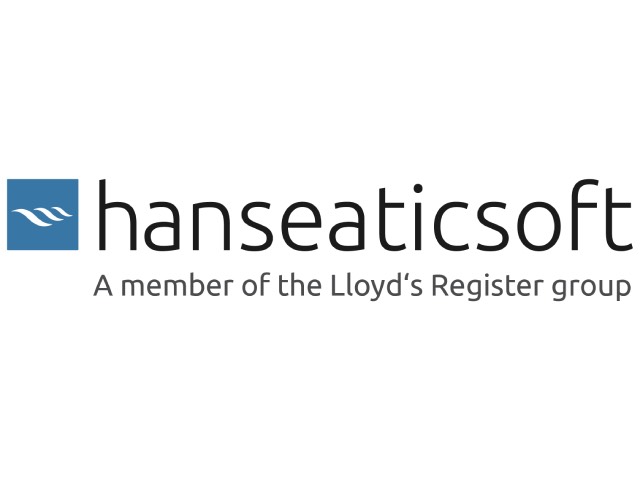The demand for digital technology has risen tenfold as maritime businesses embrace new ways of working during the coronavirus pandemic, according to satcom specialist IEC Telecom[i].
Alexander Buchmann, Managing Director, Hanseaticsoft echoes this view and says they have seen increased demand for their maritime software solution in recent months, as companies seek new ways to operate more efficiently and make cost savings.
Alexander Buchmann says, “The Covid-19 crisis has had a major impact on shipping companies, disrupting their operations, and changing their normal working practices, with more staff working remotely. Whereas historically, shipping companies were slow adopters of technology, many are now accelerating their digital strategy. Many companies are realising that technology could improve collaboration between teams on shore and at sea, create a connected workplace culture and generate major cost and efficiency savings.”
A new study, “Maritime Digitalisation Playbook,” produced by members of Maritime Singapore, highlights that when companies digitalise their processes, they increase performance, focus more deeply on innovation, and create more value[ii]. The study highlights that digitalisation needs to be on the agenda for shipping companies, because ‘competitors are doing it’ and there is a need to ‘future-proof’ business
Hanseaticsoft says that by switching from managing different tasks using a variety of solutions, or even handling them paper-based, to one centralised cloud-based system, such as Hanseatisoft’s Cloud Fleet Manager (CFM), it is possible to work regardless of location and to gain the competitive advantage.
Software is helping shipping companies with their digitisation, automating their processes, and creating connected workplaces that support strategic business goals. Having an innovative solution in place makes it possible to centralise all information and data to share insights with employees as well as crews at sea or external partners. The company says 25% of daily working time can be saved by using CFM which would otherwise be wasted by searching for and validating data.
But not only the reliable access to data can help a company to reduce expenses. Purchasing, crew management, scheduling of vessels, risk assessment or maintenance of the fleet are also some of the areas in which cost savings can be realised as a result of digitalisation.
Key areas of a ships operation that can be digitalised to save time and money:
Purchasing – using technology companies can automate their entire purchasing processes and gain real time visibility into their budgets and operating expenditure (OPEX). They can keep on top of their stock taking and purchases and managers can even approve purchases on the go. Managers no longer need to pick up the phone to request prices or place orders, they can access the latest offers and deals automatically in real time, enabling them to make more informed and faster purchasing decisions. Using an advanced solution, it is also possible to directly integrate third party e-procurement platforms such as ShipServ or SeaProc, further accelerating the procurement process since everything is handled in a single solution.
Managing crews – many companies are using software to manage every aspect of their crewing. This includes planning staff and checking their availability, managing their contracts, planning their working and resting hours – ensuring they are in line with regulations and even checking the validity of seafarers’ documents. Automating such processes saves companies significant time and money spent in administration.
Maintenance – Going digital can give shipping companies full visibility of their fleet status and their maintenance jobs, so they can manage them and cost them more efficiently and enable crews to see immediately which jobs are most critical so they can carry them out quickly and productively. Leveraging modern solutions in the market, does not only streamline processes but also brings the possibility to accelerate a variety of tasks. For example, using the Maintenance module of CFM, once a specific maintenance job has been defined, it can simply be initiated again and again.
Information sharing – using software, companies can centralise and share information easily with all staff, which can transform the way they operate. For example, sending out a fire drill procedure can be done in one click to all the vessels that need it. This speeds up communications and saves fleet managers from having to manually send instructions or check if all vessels have received them.
Technology can also change how information is exchanged and accessed. Using a cloud solution, companies no longer need to send emails back and forth, requesting or forwarding information. Data is entered once at one end and automatically made available to everybody else regardless of their or location, improving communication and collaboration and reducing a great deal of time spent on administrative tasks.
Alexander Buchmann adds, “Going digital can help companies manage all elements of their operations more efficiently and cost effectively. As more shipping companies have access to the internet at sea, they can take advantage of cloud-based solutions and mobile apps on board to transform how they operate, saving time and money and ensuring their business will be more resilient and competitive in a post-Covid world.”






































